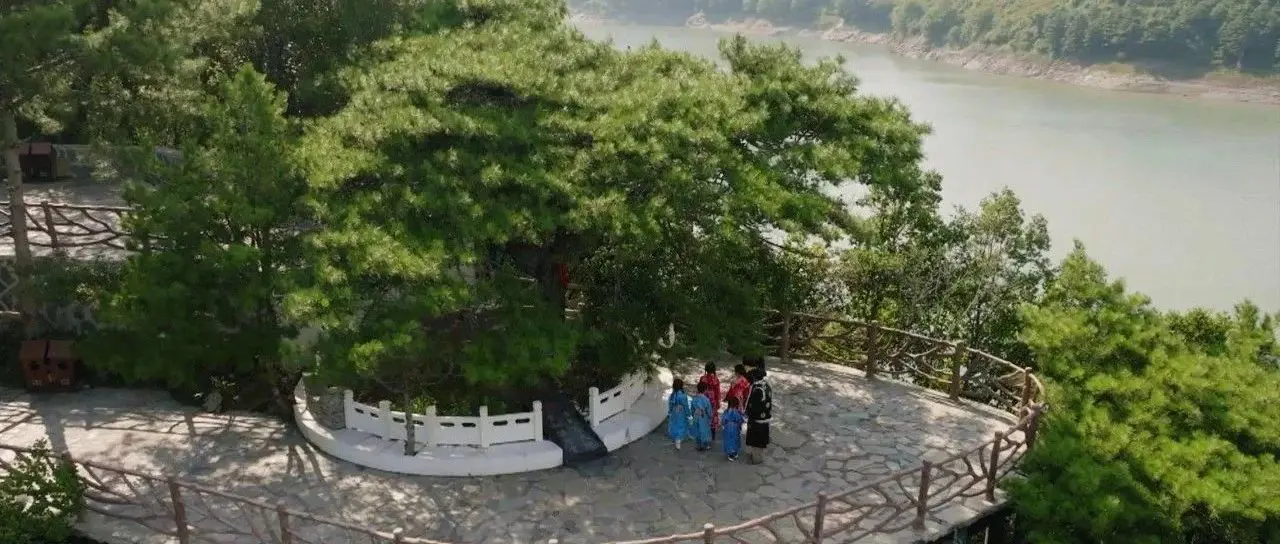"Grandpa, what place is this?"

In the southern foot of Jiajin Mountain, in the Qiaoqi Tibetan Township, there stands a unique pine tree, which the Tibetan compatriots call the "Red Army Umbrella." Beneath the "Red Army Umbrella" lie the remains of the martyrs of the Red Army from that era...
"25,000 Mile Voyage" Episode 8↓
During the Long March, the Red Army not only faced the encirclement and pursuit of the enemy but also had to overcome the severe challenges of the natural environment. In the year, the Red Army reached the northwestern Sichuan region, which was the most perilous part of the Long March. The Jiajin Mountain, located in western Sichuan, has an altitude of several thousand meters, with year-round snow, thin air, no roads, and no human habitation. The climate is unpredictable. On the date, the main force of the Central Red Army successfully crossed the Dadu River and prepared to head north to join forces with the Fourth Front Army of the Red Army. After repeated consideration, the Red Army decided to cross the Jiajin Mountain. Facing the towering snow-capped mountains, the Red Army soldiers did not retreat.
In the month of the year, though it was midsummer, the Jiajin Mountain was covered in heavy snow. The Red Army soldiers, wearing thin clothes and straw sandals, made torches with bark from cypress trees and dried bamboo, used bamboo poles and branches as crutches, ate dried chili peppers to keep warm, gnawed on dry rations to stave off hunger, and swallowed snow to quench their thirst, advancing step by step with great difficulty. However, their thin military uniforms and tattered straw sandals could not withstand the onslaught of the wind and snow. Countless Red Army soldiers perished on the icy snow-covered mountains while crossing them, succumbing to the harsh natural conditions of cold, hunger, blizzards, and extreme oxygen deprivation. The other soldiers, unable to spare the time or strength, could not bury all the remains of their fallen comrades.
In the southern foothills of Jiajin Mountain, in Bao'an County, Ya'an City, Sichuan Province, there is a unique pine tree in Qiaoqi Tibetan Township. It is lush and umbrella-like in shape. The elders of the local community often tell the story of this pine tree to the younger generations. "Grandpa, what place is this? Why did we come here?" "During the time when the Red Army crossed Jiajin Mountain, many Red Army soldiers were buried here." Back then, the Tibetan compatriots spontaneously organized to risk climbing the mountain, following the Red Army's route, to gather and bury the remains of the Red Army martyrs they found. Out of fear of being discovered by the enemy, no tombstones were erected, and instead, a small pine tree was transplanted as a marker. Every Qingming Festival or Spring Festival, Tibetan compatriots would come here spontaneously to offer hada and express their grief. Now, this small pine tree has grown tall, shielding the martyrs from wind and rain. People have named this tree "Red Army Umbrella."
The hero has passed away, but his spirit lives on forever. The "Red Army Umbrella" witnessed the heroic and fearless, hard-fought and sacrificial years of the Red Army soldiers, and also witnessed the people's boundless reverence for the Red Army.

